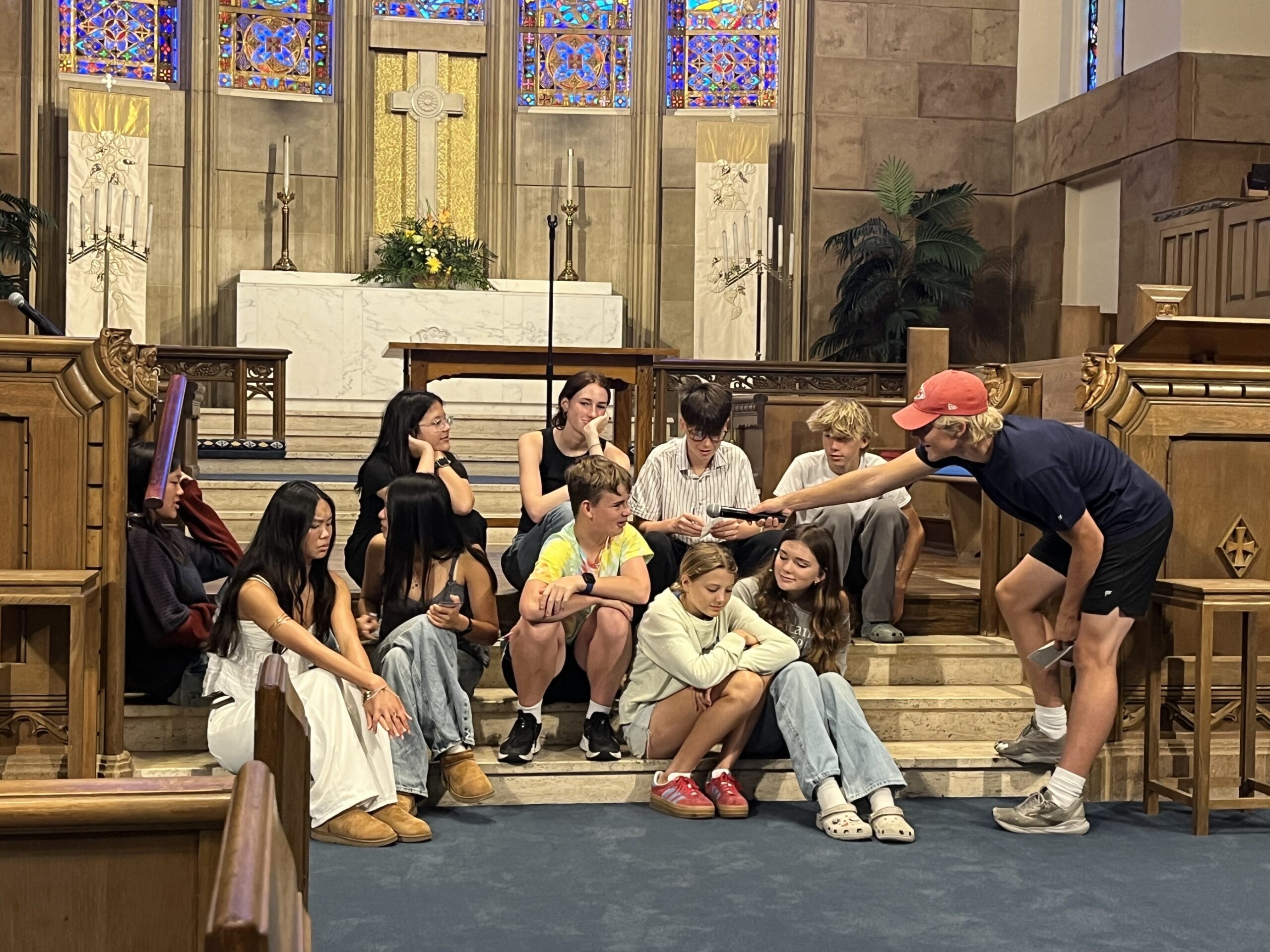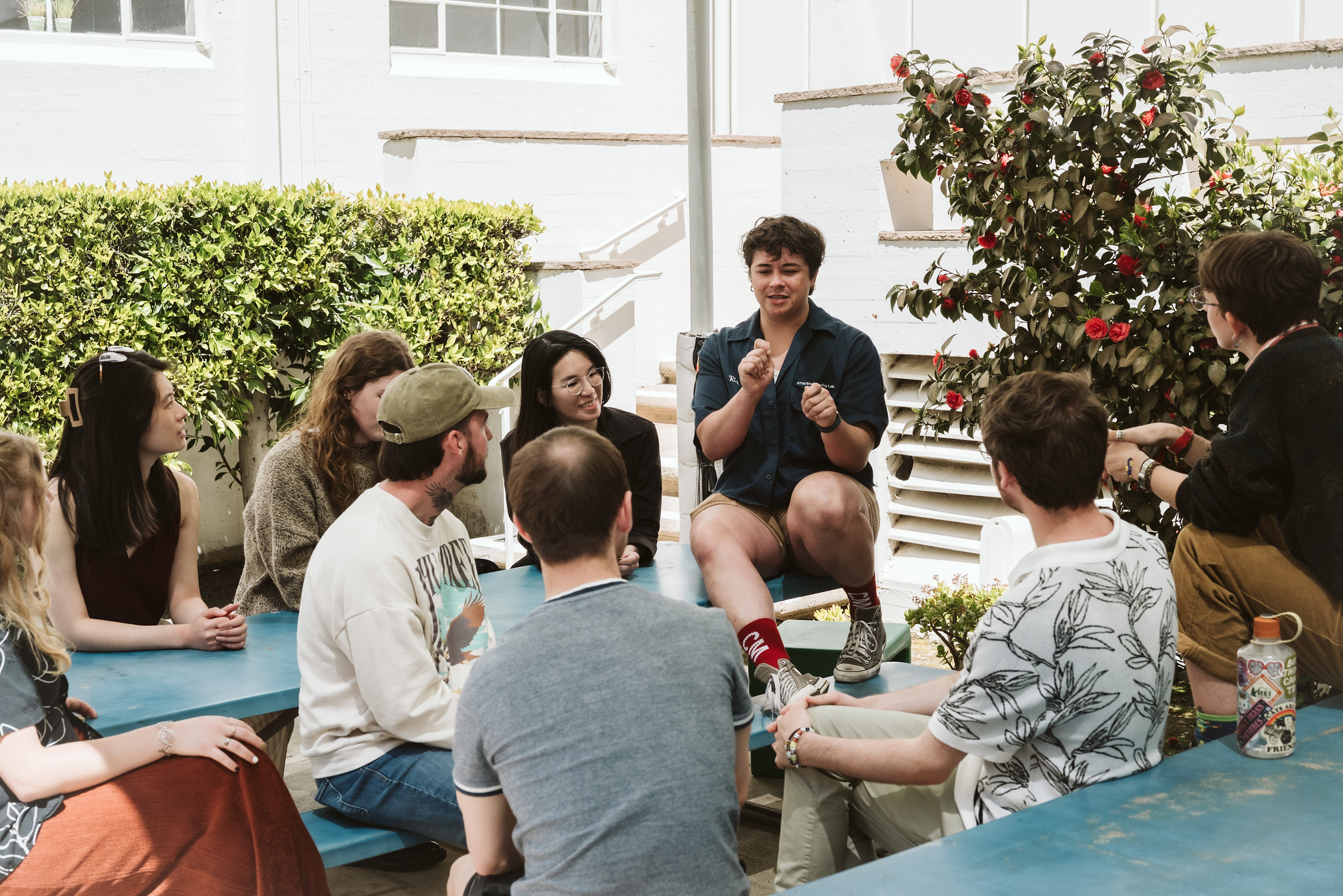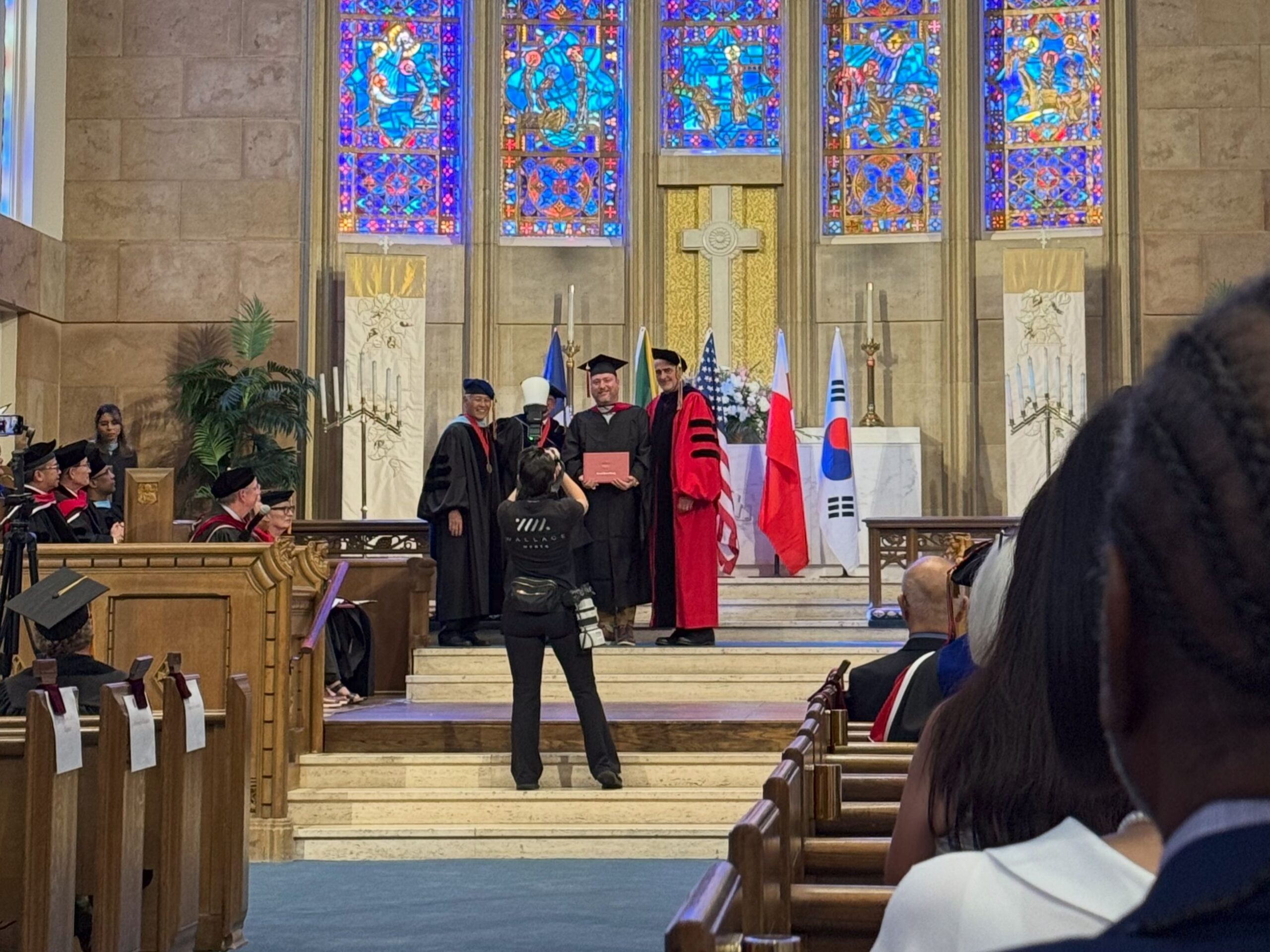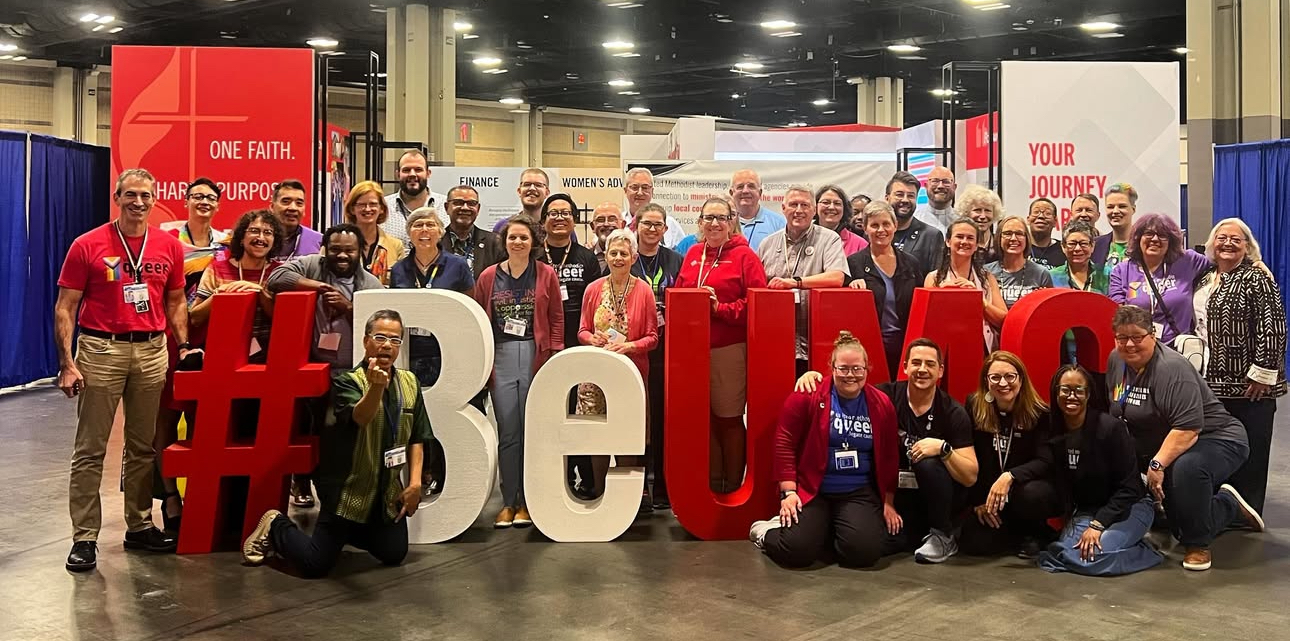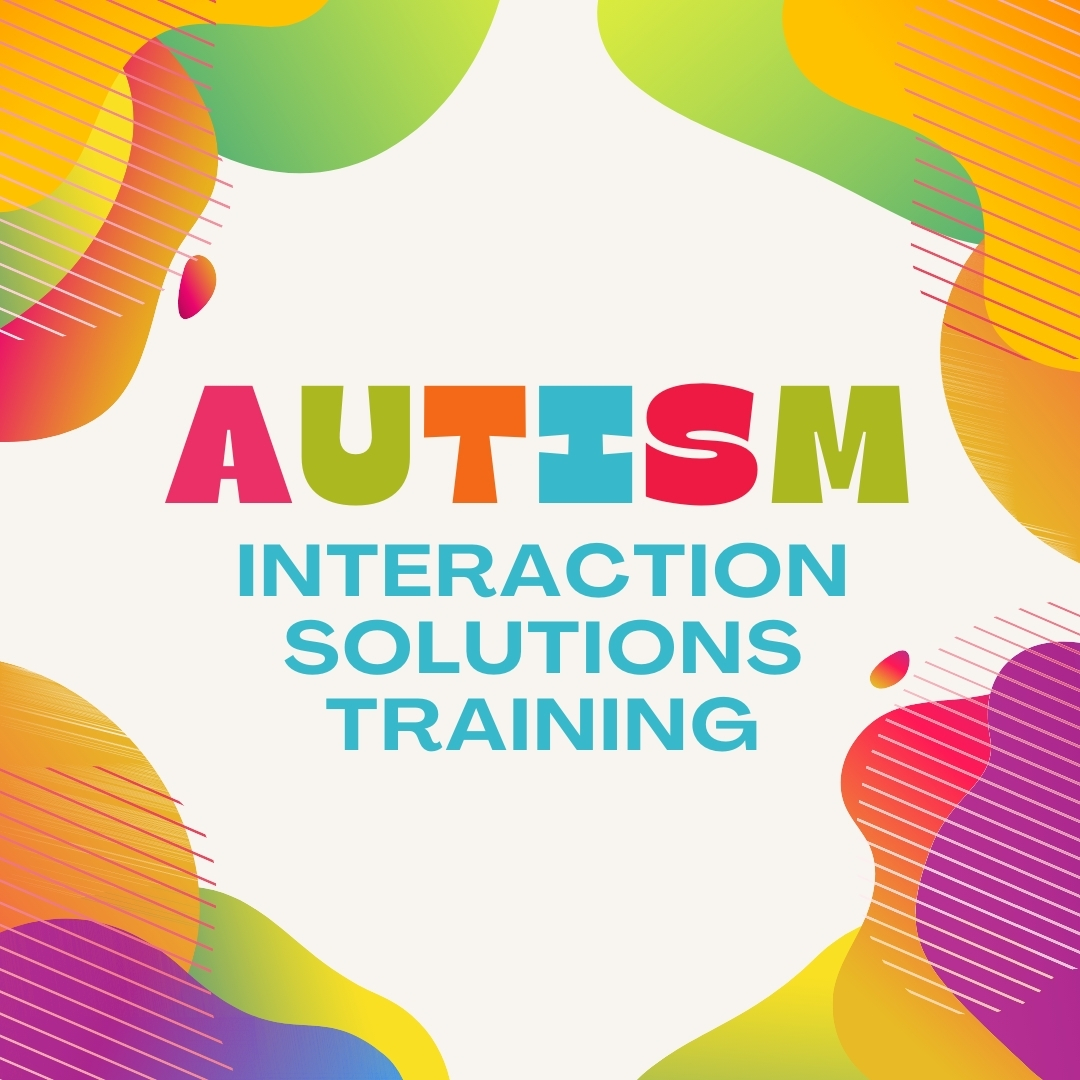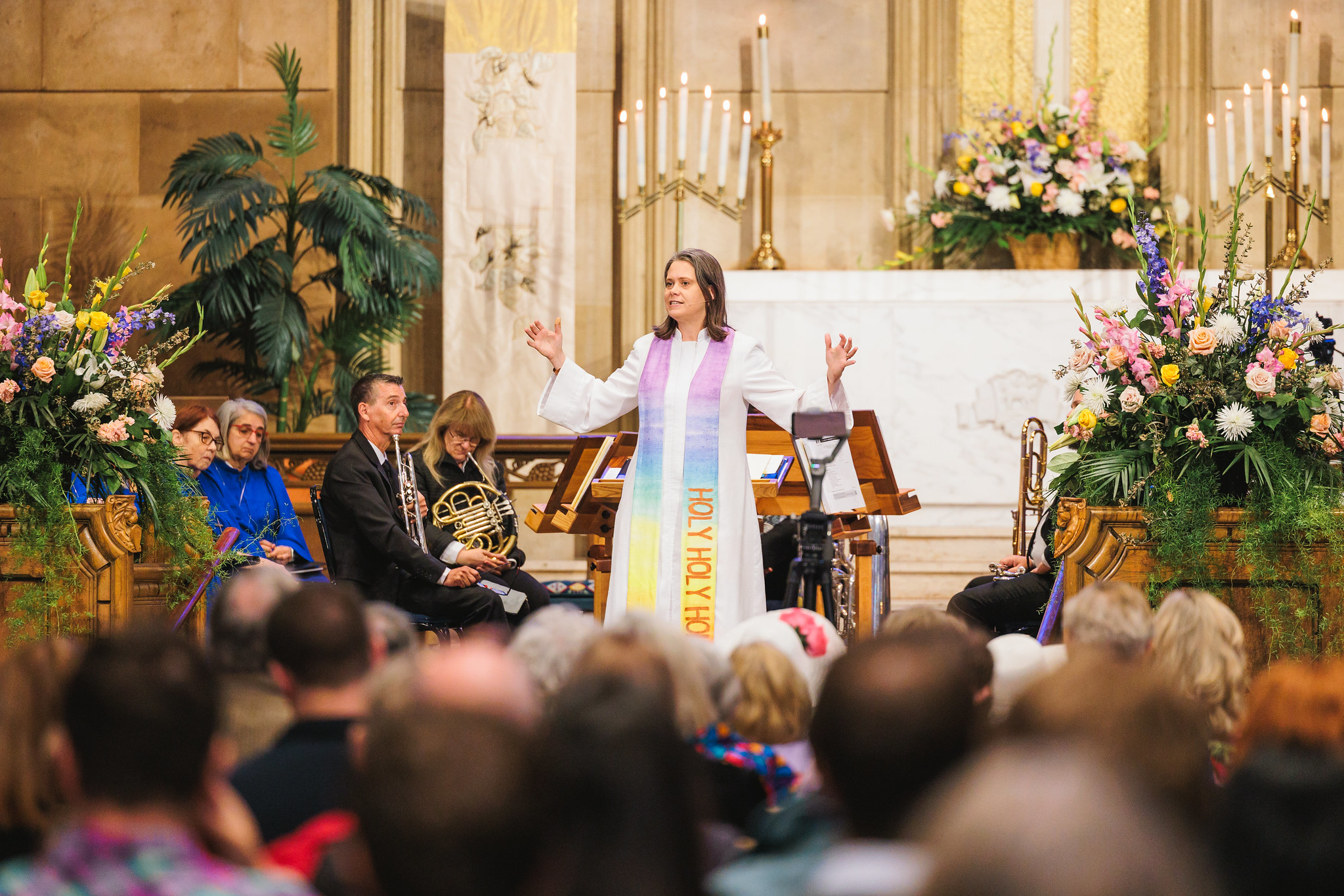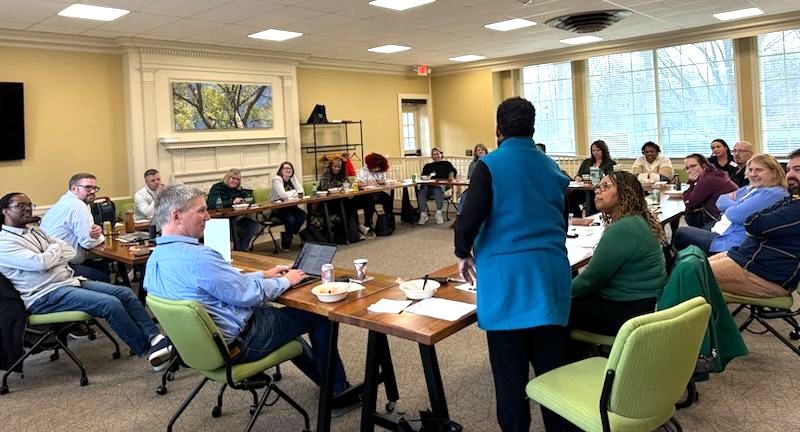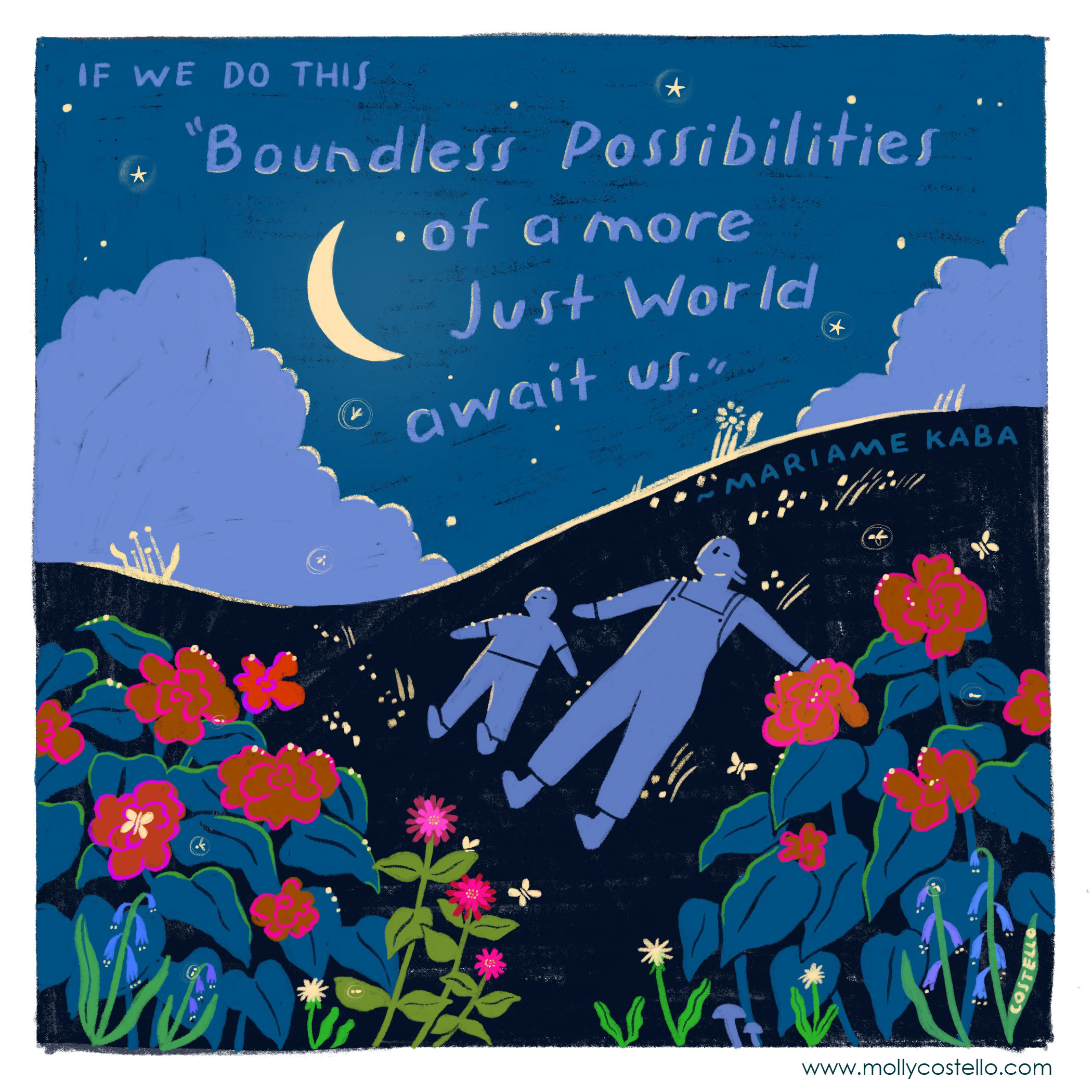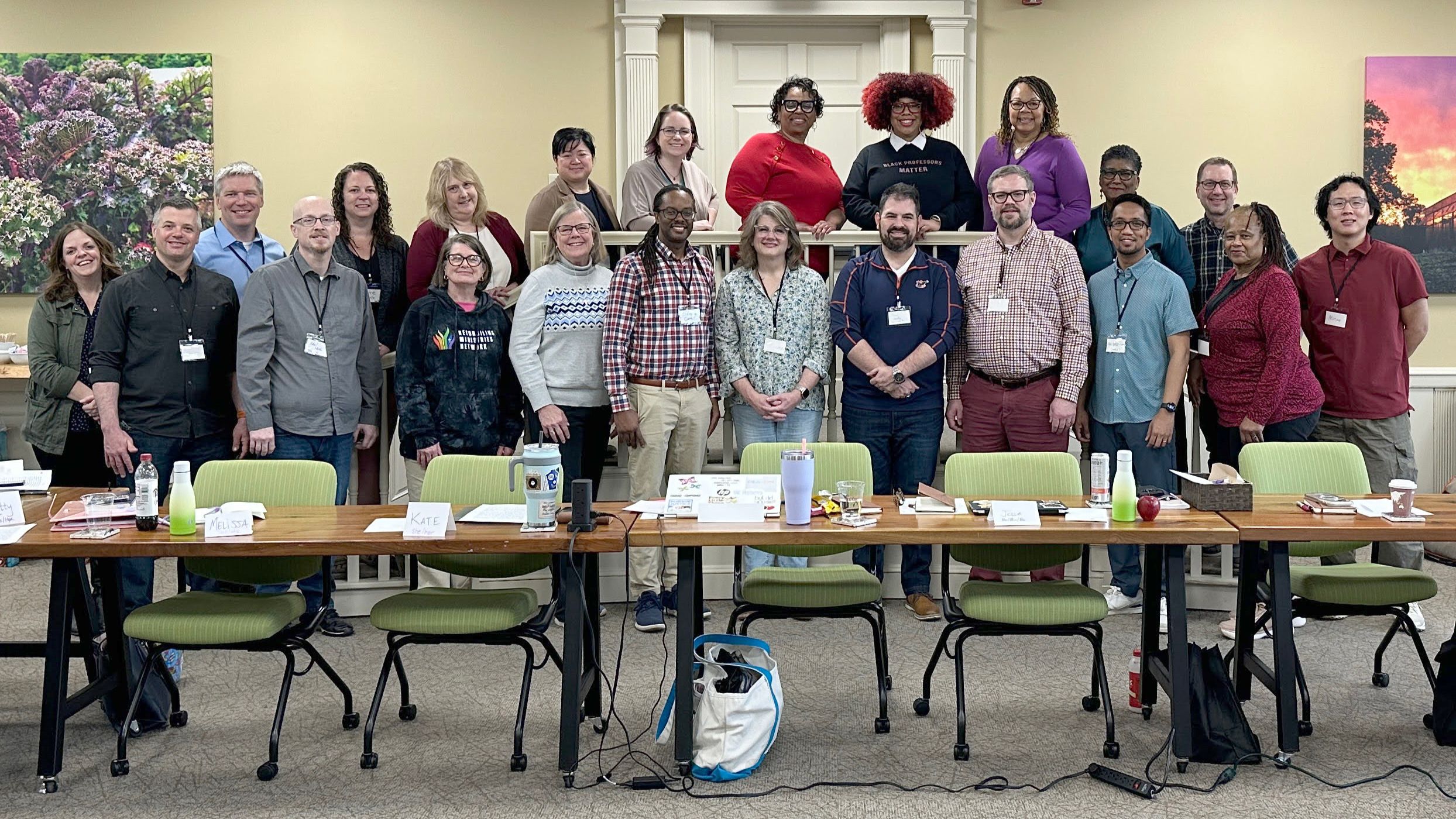
Dear Westwood Family,
Next week, our church will host fifteen clergy and laity church leaders from around the country who have completed part one of a three-part anti-racism training program that I am co-facilitating, entitled Racial Resilience. This project will connect congregational clergy, lay leaders, and youth with training around anti-racism and justice, and will present these principles as core to their churches and communities. It is made possible by a grant from the Lilly Endowment Inc. Pathways for Tomorrow Initiative. These first eight weeks have been transformative for our group, and I am excited for what we will be able to create over the next year.
This is the first time I have ever led a group of people who had to apply to participate rather than being forced or encouraged by their organization. The difference in engagement and commitment is striking! From the outset, they demonstrated a commitment to creating the Beloved Community on Earth as it is in Heaven. Despite the pain that often accompanies spiritual growth and maturity, it has been a joy to encourage and facilitate such development. To be sure, it has given me renewed hope for our own congregation at Westwood that we can also become a community committed to the praxis of anti-racism, justice, and love. Without the experience of facilitating this group, I don’t believe I would have come to this conclusion. Sure, it would have been our aim, but actually committing ourselves to doing the work would have seemed improbable because the incentive to change requires imagining a future where power is redistributed in ways we have yet to experience.
My expectations of what our community can achieve have always been tempered by the reality that eliminating racism within our institution and our religious practices is a choice that white people must make. If this were an easy choice for white Christians, I’d like to believe they would have already done it by now! Leading this group has given me much more hope, in part, because of the engagement of the white participants. People of color are incentivized to do this work in obvious ways – a less racist society makes our lives safer and generally easier. Moreover, as an ethnic minority in this country, we know that love and non-violent resistance are our best strategies for long-term social transformation. However, the incentives for white people to practice anti-racism are less obvious, yet no less impactful.
Whiteness, as an ideology, is built upon the concept of human exceptionalism. Certain humans are regarded as superior to others based on characteristics they consider important, such as race. However, when whiteness ceases to provide all “white” people with the material and psychological benefits associated with it, the number of individuals deemed “white” diminishes until, ultimately, whiteness destroys even itself. Black racial justice advocates understand this. In his 1965 speech “Our God Is Marching On,” Martin Luther King Jr. stated that:
“If it may be said of the slavery era that the white man took the world and gave the Negro Jesus, then it may be said of the Reconstruction era that the southern aristocracy took the world and gave the poor white man Jim Crow. He gave him Jim Crow. And when his wrinkled stomach cried out for the food that his empty pockets could not provide, he ate Jim Crow, a psychological bird that told him that no matter how bad off he was, at least he was a white man, better than the black man. And he ate Jim Crow. And when his undernourished children cried out for the necessities that his low wages could not provide, he showed them the Jim Crow signs on the buses and in the stores, on the streets and in the public buildings. And his children, too, learned to feed upon Jim Crow, their last outpost of psychological oblivion.
While the signs may be less obvious to some, we have entered a new era of Jim Crow-type thinking where discrimination is once again being legalized in the name of faux equality. Organizations and institutions of higher education are prohibited from implementing policies designed to correct historical injustices, often referred to as Diversity, Equity, and Inclusion policies, or DEI. People of color, women, and trans-folk have been fired from their jobs because, regardless of their qualifications, they are “seen” as a DEI hire. United States citizens, Green Card holders, and other legal residents have been abducted by federal agents, taken into custody, and deported because they “look” like people who aren’t here legally. The Executive Branch of our government is ignoring the checks that the Judicial Branch has over it. These actions mirror what happened at the end of the Reconstruction Era and pre-World War II America. I write this not to be depressing or alarmist, but to emphasize this point: white supremacy thrives when white people and enough people of color deny the reality I have just described and adopt a politics of inevitability or a politics of eternity.
As Timothy Snyder describes in his book On Tyranny, the politics of inevitability cultivates a sense that history is moving in only one direction: toward liberal democracy. Stated theologically, it is the belief that the moral arc of history bends toward justice and that people of faith have little or no role in applying the social and spiritual force that causes it to bend. Conversely, a politics of eternity reimagines the past with self-absorbed nostalgia. Rather than taking accountability for past mistakes, it encourages a denial of history and truth while fostering feelings of victimhood. In this way, our failure to become “great” is not our fault; rather, it is due to our being victimized by our enemies, especially the “enemy within.”
Avoiding the consequences of a politics of inevitability or eternity requires us to commit to consistently reassessing who we are as a church and who we aspire to be. It demands that we, as individuals and as a community, practice contemplative self-reflection as a means of spiritual maturation and growth. We must not see ourselves as exceptions or too clever to be lured by the evident weaknesses of the politics of inevitability and eternity. Justice advocates who cannot acknowledge mistakes, evade accountability, or believe they have learned everything necessary about a particular topic exemplify individuals who have not advanced beyond exceptionalist behavior. Although they may be capable of valuable justice work, their effectiveness will be limited by a lack of self-reflection. Consequently, they are more likely to replicate aspects of the oppressive systems they aim to dismantle, both subtly and sometimes overtly. When we view systems of oppression as solely existing “out there” in the world and not within ourselves, our ego compels us to adopt a defensive stance that obstructs our ability to explore the realm of the Self. While penetrating the sphere of the self is the most painful part of this process, it is also where we experience the greatest growth.
Creating the Beloved Community on Earth as it is in Heaven calls for us to commit to modeling a justice-oriented Christian social ethic, both within our church and at the conference and denominational levels. In our current social climate, where political leaders set poor examples of accountability and ethics, it is even more essential for us to embody a justice-oriented religious and social ethic. To be clear, justice requires us to be fair, and fairness doesn’t always equate to equality. Those who oppose Affirmative Action in higher education argue that it is an unequal policy that harms white students. The argument for dismantling the Voting Rights Act in 2013 claimed it imposed an undue and unequal burden on former Confederate States compared to former Union States. Equality does not always account for the critical historical context necessary to achieve justice. This is why, during his Sermon on the Mount, Jesus repeats the phrase “you have heard it was said… but I say to you”; sometimes context demands that we adjust rules and policies in the name of fairness and justice.
I believe with every fiber of my being that Westwood United Methodist Church is capable of being a leader and demonstrating what an anti-oppressive, unapologetically inclusive, compassion-filled, Christ-centered church can do to resist the lure of nationalism in general and white Christian nationalism specifically. We can achieve this by acknowledging what we see happening in our country and around the world while holding ourselves accountable for the work of healing, repair, and reconciliation. To be sure, we must not only accept the reality of what we observe, but we must also strive to understand the realities of others whom we have yet to encounter. When we do this we choose to stand out, to embrace the unease that comes with speaking up against wrongdoing, and recognize that this unease will serve as a guidepost pointing us towards the freedom that we all seek.
The second thing we must do to create a community where all bodies are welcome and feel safe, regardless of racialization and citizenship status, is to hold ourselves accountable to just laws and to subvert unjust laws. Institutions that prioritize self-preservation over what is morally and ethically right inevitably create cultures of unaccountability, where unjust actions are explained away because confronting them would require taking a U-turn and addressing one’s internalized racial anxieties. Let us realize that it is a privilege to turn away from something that makes us uncomfortable. Let us hold those reactive and uncomfortable parts in compassionate care so that we might listen to the moral and ethical wisdom they are trying to teach us.
May the Spirit inspire us to realize this vision of the Beloved Community with courage. May Sophia, the wisdom of God, guide us in discerning where we ought to begin and what we ought to do. May we be strengthened by the teachings of Jesus so that, with hammer in hand, we can bend the arc of history toward justice. And as we undertake this work, may we be filled with the love of God, praying without ceasing, “beloved, let us love one another, for God is love.” Amen.
In Love & Solidarity,
Rev. Dr. Christopher Carter


